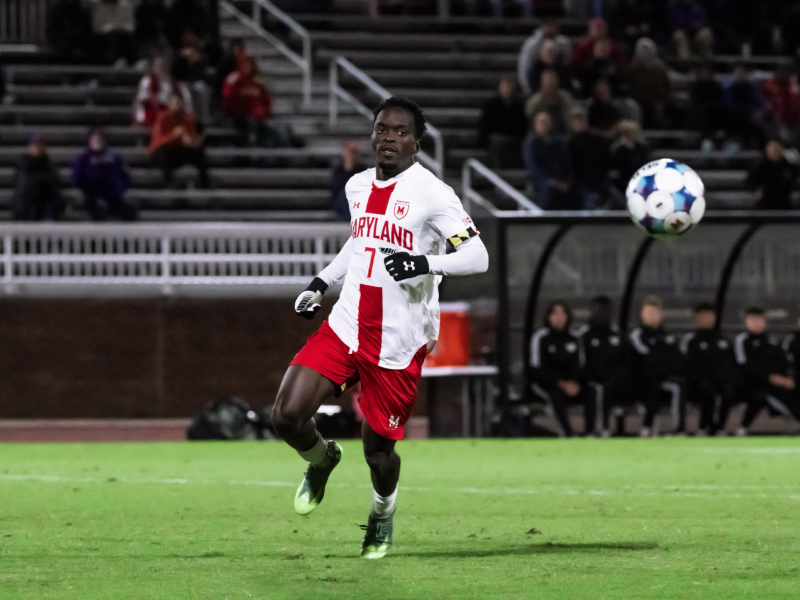University President Dan Mote expressed regret on Friday for the university’s early connections to slavery, but stopped short of issuing an apology.
His remarks came after students from an undergraduate research course released “Knowing Our History,” a 40-page report showing an intimate relationship between slavery and the university’s origins as an agriculture college.
Although the report found no definite proof that slaves built campus buildings or served the university’s early students, it makes clear the university was a product of wealth built on slave labor and a society rooted in plantation culture. The report shows that 16 out of the university’s original 24 trustees owned slaves, and Charles Calvert, the university’s founder, owned 52 slaves.
After the students introduced their findings in a ceremony at the David C. Driskell Center, Mote repeatedly cast the university’s founders as products of their time and did not formally apologize for the university’s ties to slavery.
“As inheritors of a society in which slavery was practiced widely, we all share in the benefits and tragedies of that era,” Mote said. “The University of Maryland is like many institutions founded in the era in which slavery was practiced in the United States. Because of this legacy, the university shares in the profound regret for the suffering and injustices.”
The state of Maryland, the United States Congress and several other universities have issued such apologies.
Mote personally commissioned the research course last year after the university’s 150th anniversary reignited a debate about slavery’s role in building the Maryland Agriculture College, which later evolved into the university. But even after 18 undergraduates, a graduate student and history professor Ira Berlin investigated the matter for two semesters, the role slaves played in the university’s founding is still not entirely clear.
The university’s first president, Benjamin Hallowell, was an ardent abolitionist who accepted the position based on the condition that slaves wouldn’t work the campus grounds. And the report notes that university’s emphasis on agricultural science likely implied that even its slaveholding founders recognized the limitations of the state’s struggling slave-based economy.
But Hallowell quit his job after one month at the institution, and it’s unclear whether slaves worked on the campus after he left. Regardless, the report stresses the Maryland Agricultural College emerged from a slave-dependent economy.
Even if the slaves didn’t lay a single brick on the campus, they likely delivered supplies and built its bricks and mortar, said junior history major Grace Waldron, who contributed to the report.
“In this economy, you’re going to have slave labor involved in the building of this campus no matter what,” Waldron said. “But whether they built the buildings, whether they labored on the campus, we just can’t say with 100-percent certainty.”
In light of their early findings, the students recommended the university study slavery further, issue a statement of regret and reassert its commitment to international fair-labor laws. They also urged Mote to honor Hallowell and the black laborers who contributed to the university by naming them as founders.
Mote said he would review the recommendations, but expressed reservations about adding to the list of the university’s official founders.
“We’re going to respond to the ones that we can respond to,” Mote said. “We, of course, support those recommendations in general, but I think it’s a bit difficult to change your founders. It’s like trying to change the signers of the Declaration of Independence.”
After the university’s 150th anniversary, several black students and professors called on Mote to formally apologize for slavery’s history on the campus. But the Rev. Jerome Fowler, the great-great-grandson of one of Calvert’s slaves, balked at the idea on Friday.
“I believe the founders should be recognized, and of course, I am favorable to my ancestor being recognized as what they have called a founder of the school,” he said. “My only concern, and the only hesitation that I have, would be the recommendation of a statement of apology coming from the university because none of us that are living were a part of that society. We are all of the present society. None of us are slaves. None of us are slaveholders.”
slivnick@umdbk.com


